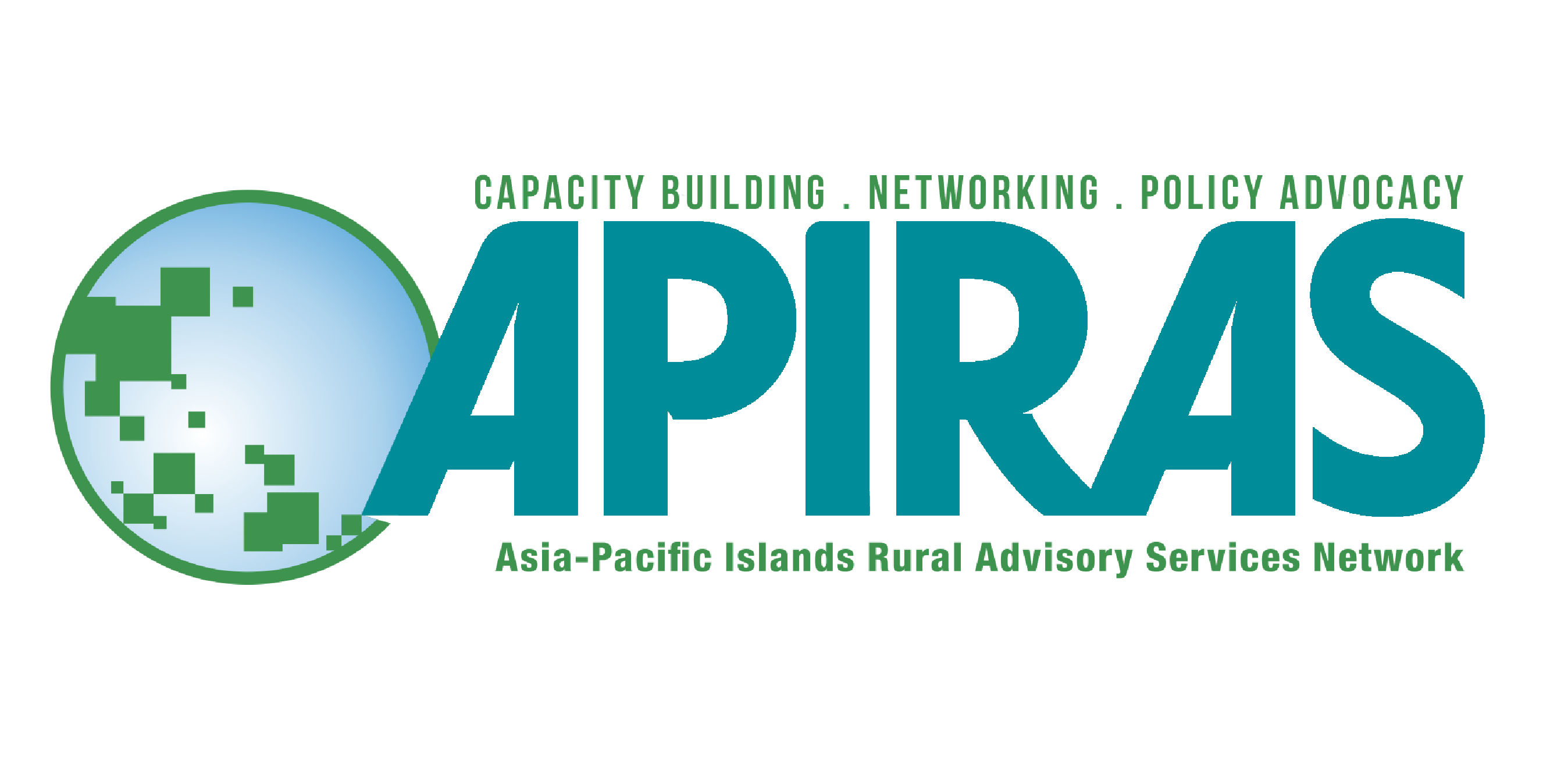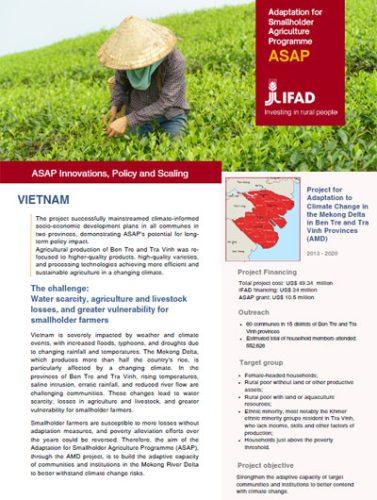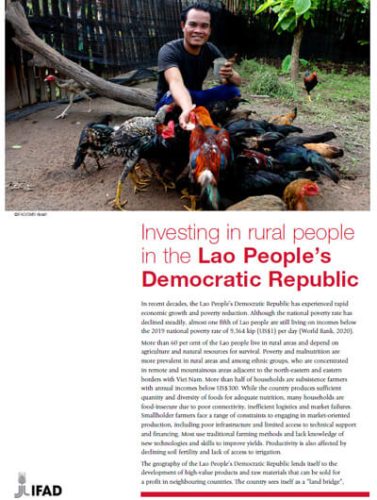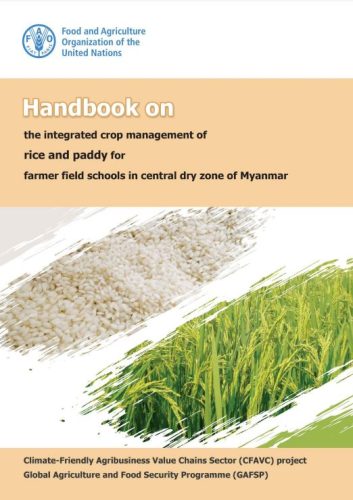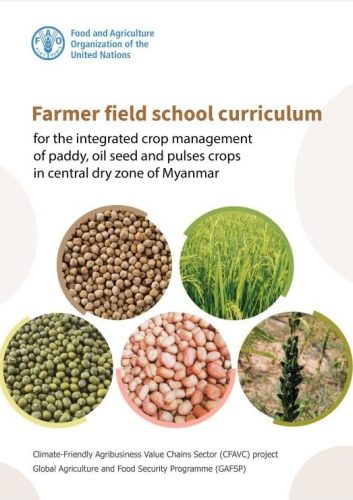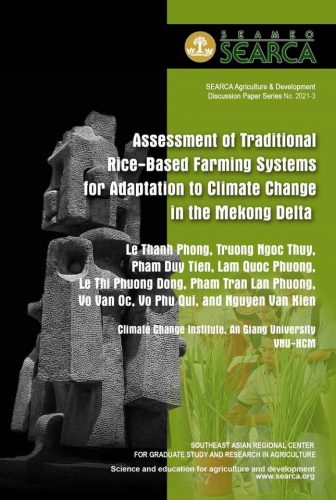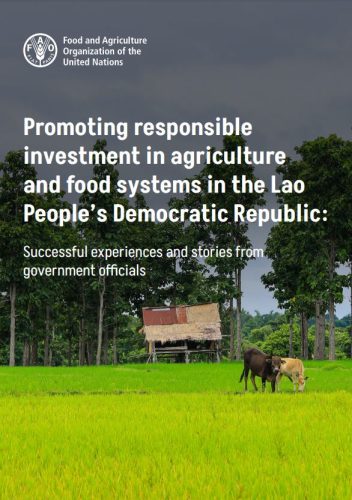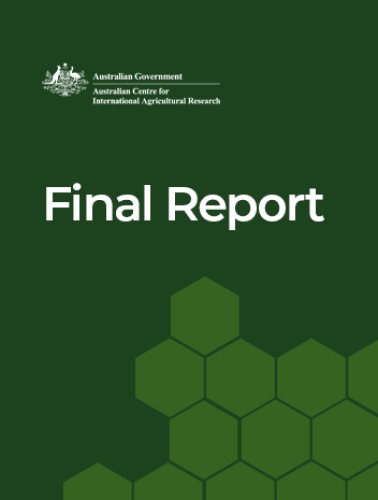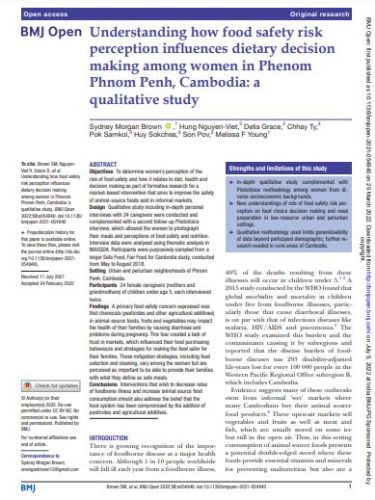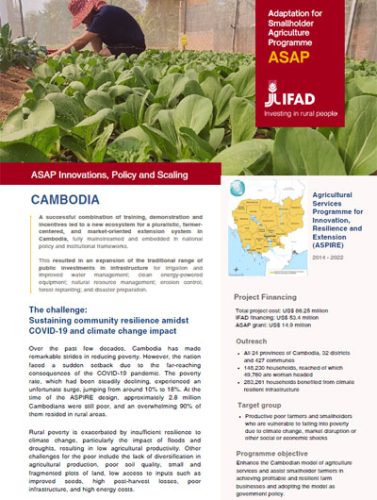
Cambodia: Agricultural Services Programme for Innovation, Resilience and Extension (ASPIRE)
ASPIRE implemented a demand-driven approach to agricultural extension services, fostering innovation through new policies and strategies. By building the capacity of farmers, the private sector and NGOs with context-relevant agricultural knowledge, the project created an enabling environment for change.
This resulted in an expansion of public investments in irrigation infrastructure and improved water management; clean energy-powered equipment; natural resource management; erosion control; forest replanting; and disaster preparation.
